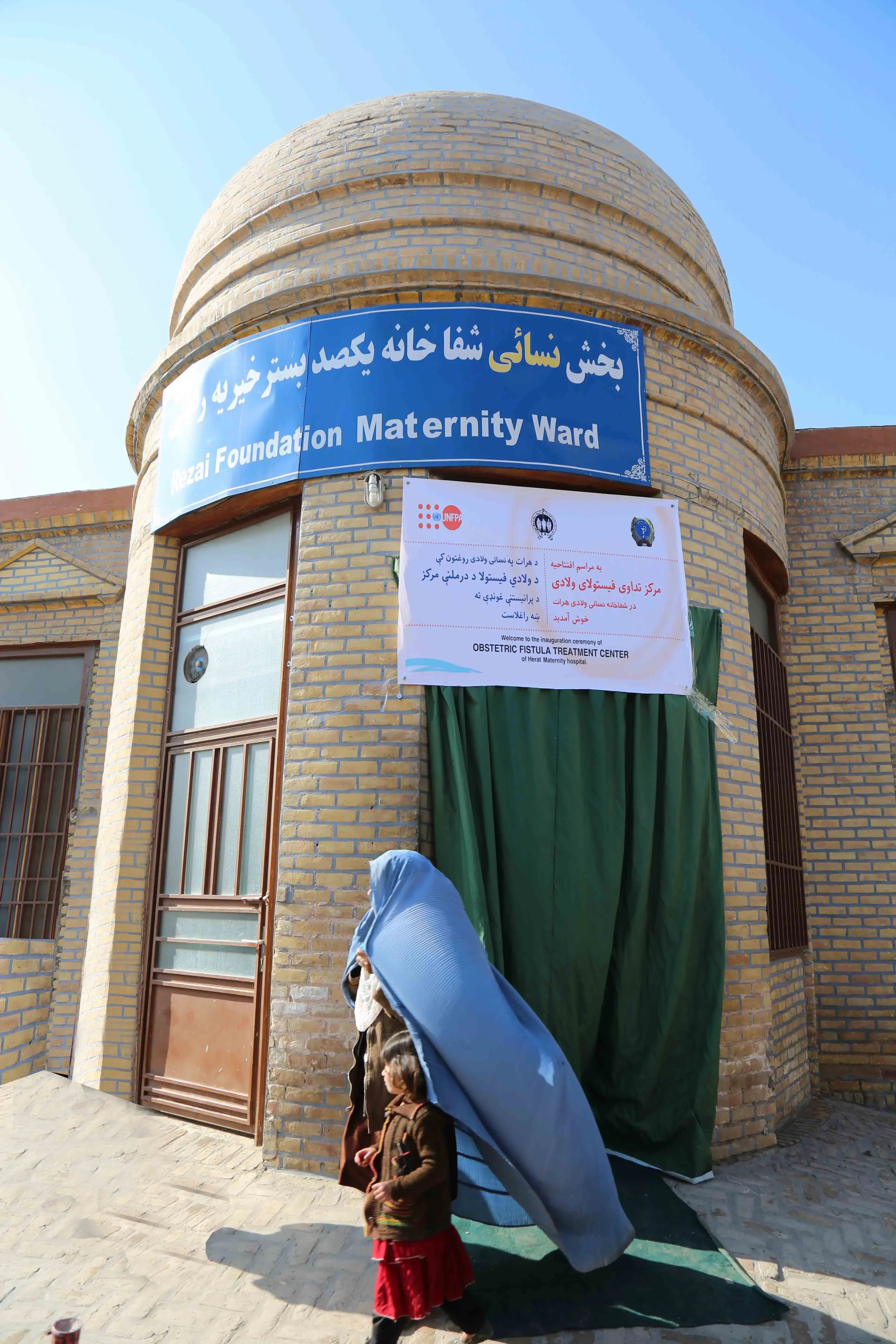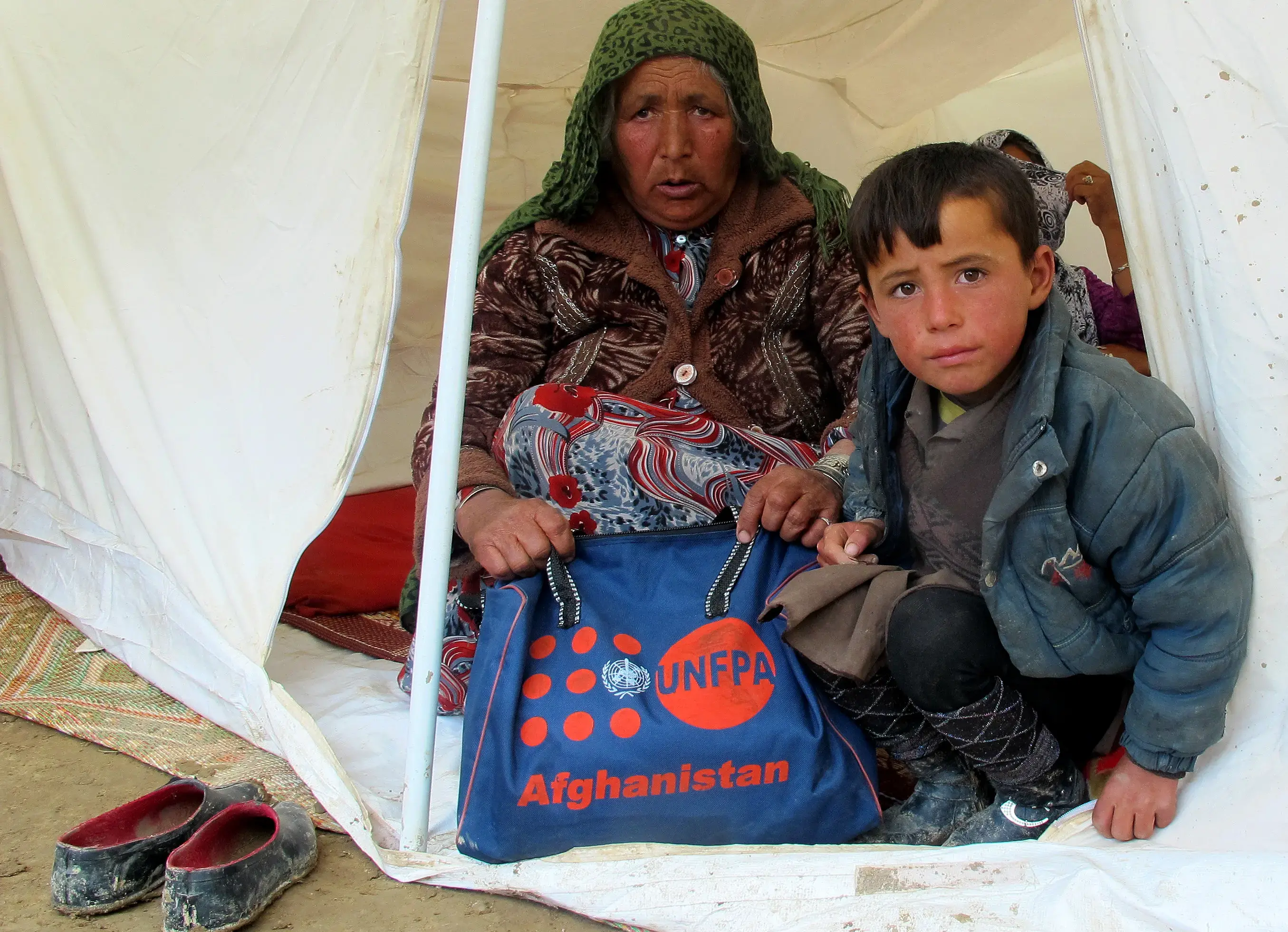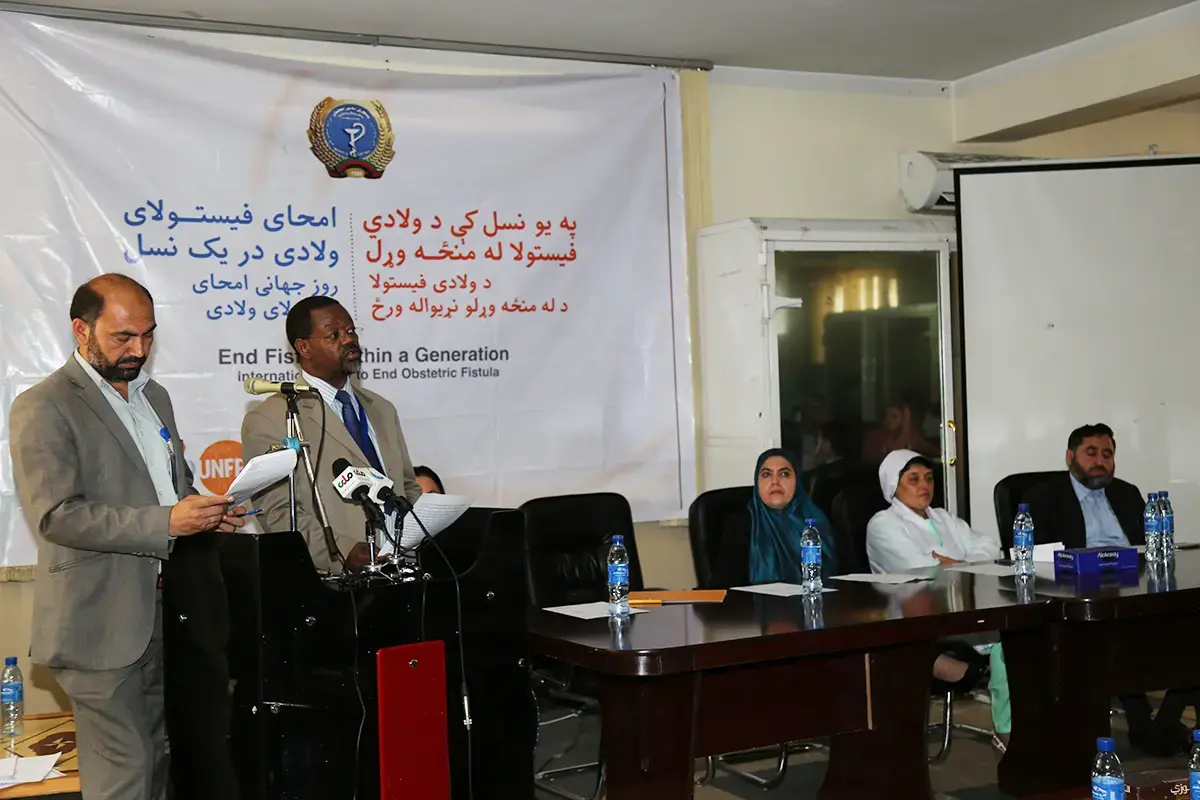Titled "Darde Penhan" which means "The unnamable pain", the radio drama is a journey in the life of an afghan women living with obstetric fistula in Afghanistan today. From physical towards emotional pain because you have lost a child and you are isolated from your family and loved ones as it is difficult for them to ignore the smell urine and feces, to finally discover the possibility to find a treatment for your medical condition.
Most women who have developed Obstetric Fistula may not be aware that a medical treatment is available or they cannot access or afford it. "Darde Penhan" is an attempt to raise awareness on a medical problem that most of the time is not even properly recognized and addressed.
Produced by Mamnoon Maqsoodi - very popular actor in the Afghanistan - for Radio Killid, the radio drama is broadcasted by 5 radio station reaching five different provinces such as Kabul, Bdagshan, Bamyan, Faryab and Daikundi.
| Zones | No | provinces | radio name | frequency | Epe 1st | Epe 2nd | Epe 3RD | Epe 4th | EPE 5TH | EPE 6TH | EPE 7TH | EPE 8TH |
| 1 |
Kabul
|
Radio Killid | 88FM | 15.01.12 at 12:00 | 18.01.12 at 12:00 | 22.01.12 at 12:00 |
25.01.12 at 12:00
|
29.01.12 at 12:00 | 01.02.12 at 12:00 | 05.02.12 at 12:00 | 08.02.12 at 12:00 | |
| 2 | Badakhshtan | Radio Amu | 87.6FM | 14.01.12 at 16:10 | 17.01.12 at 8:30 | 21.01.12 at16:10 | 24.01.12 at8:30 | 28.01.12 at 16:10 | 31.01.12 at 8:30 | 04.02.12 at 16:10 | 07.02.12 at 8:30 | |
| 3 | Bamyan | Radio Paiwand | 88.7 FM | 15.01.12 at 16:00 | 18.01.12 at 16:00 | 22.01.12 at16:00 | 25.01.12 at 16:00 | 29.01.12 at 16:00 | 01.02.12 at 16:00 | 05.02.12 at 16:00 | 08.02.12 at 16:00 | |
| 4 | Faryab | Radio Milli | 104.3FM | 15.01.12 at 16:00 | 18.01.12 at 16:00 | 22.01.12 at16:00 | 25.01.12 at 16:00 | 29.01.12 at 16:00 | 01.02.12 at 16:00 | 05.02.12 at 16:00 | 08.02.12 at 16:00 | |
| Kabul | 5 | Daikundi | Radio Daikundi | 88.5FM | 15.01.12 at 16:00 | 18.01.12 at 16:00 | 22.01.12 at16:00 | 25.01.12 at 16:00 | 29.01.12 at 16:00 | 01.02.12 at 16:00 | 05.02.12 at 16:00 | 08.02.12 at 16:00 |
In 2010, UNFPA supported a prevalence survey in six provinces, which indicated that a large majority of sufferers were from among women who were married and became mothers in their teens; 64% respondents reported prolonged labour immediately prior to developing the fistula.
The high incidence of obstructed labour, and the fact that a large percentage of women deliver at home assisted by unskilled birth attendants, suggest that incidence of obstetric fistula is fairly high all over the country, especially in remote rural areas in Afghanistan.
Today UNFPA continues to support the country's first Obstetric Fistula treatment facility at Malalai Maternity Hospital in Kabul, which it established in 2007, in partnership with the Ministry of Public Health (MOPH). Since then, Malalai Hospital has enjoyed the regular support of UNFPA for provision of medical supplies and equipment, and technical capacity building of hospital staff, to enable them to treat OF patients, and provide basic emergency obstetric care.
Recognizing the seriousness of the issue, UNFPA advocated for the inclusion of Obstetric Fistula elimination and treatment, in the revised national RH Strategy and Action Plan, in 2010, and enabled the surgical treatment and rehabilitation of women suffering from OF and related problems, at the Malalai Hospital Fistula Treatment Centre in Kabul.
Alongside technical and financial assistance to the Obstetric Fistula treatment centre at the Malalai Hospital in Kabul, UNFPA also provide financial support to patients. This support includes in kind payment for the accommodation and transportation costs from home to hospital and back.
You can listen to the radio drama in 8 episodes




